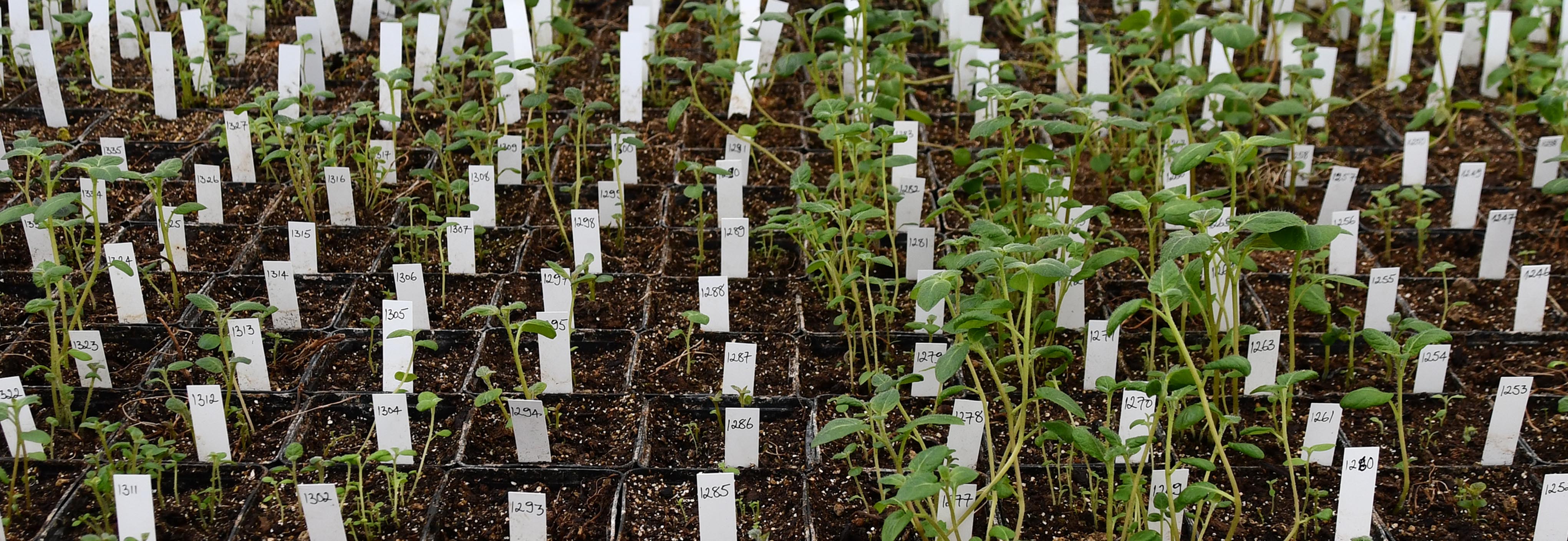Innovative Plant Breeding
Plants represent the greatest natural resource for the sustainable development of mankind. They not only provide food and fodder, but are also used to produce a wide variety of raw materials and renewable energy.
About 12,000 years ago, people began to domesticate plants: They selected particularly advantageous plants according to their phenotype and replanted their seeds. Over the millennia, the occurrence of random mutations and recombination gave rise to our current crop plants from wild plants.
Plant breeding is a process that is never complete; even the modern high-performance varieties of our cultivated plants are constantly being developed. In the very time-consuming process, up to twelve years can pass before a breeding line is created and approved as a new variety after a cross and several selection steps. The breeding goals are correspondingly long-term.
In view of the steady growth of the world's population, climate change and the continuing loss of arable land, the importance of plant breeding is enormous, since it must develop answers to all these global challenges in the form of appropriately adapted plant varieties for the agriculture of the future. The main objectives of modern breeding programs therefore cover a wide range: from strengthening resistance to abiotic and biotic stress factors to increasing yields and yield stability, improving quality traits and optimizing resource efficiency. Plant breeding also aims to keep pace with customers' changing health and taste preferences.
 Fraunhofer Agriculture and Food Industry Alliance
Fraunhofer Agriculture and Food Industry Alliance